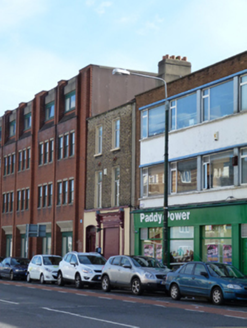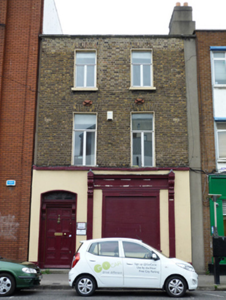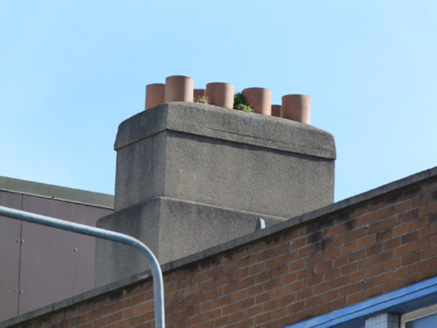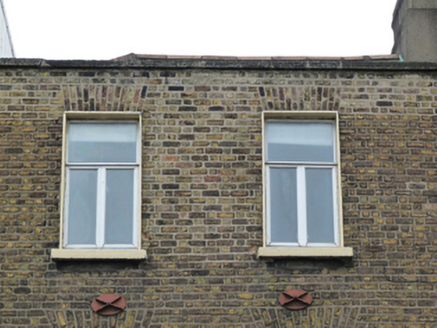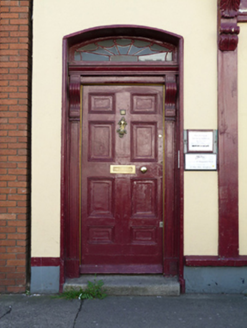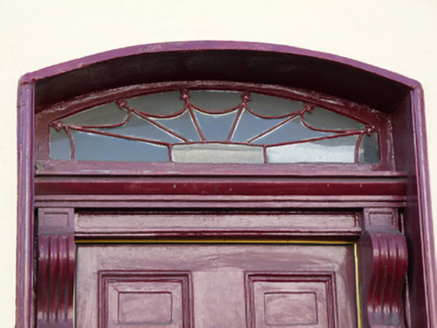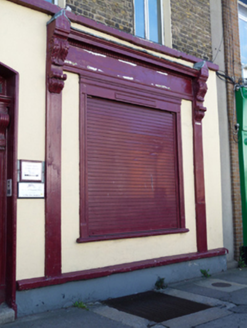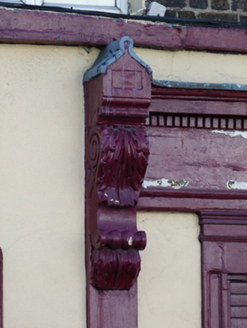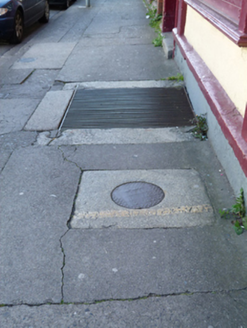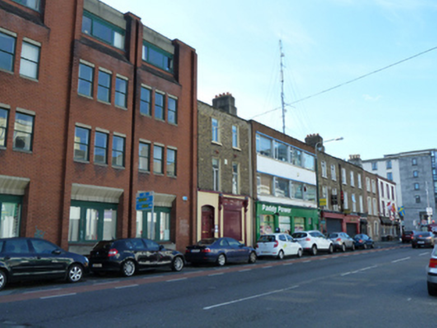Survey Data
Reg No
50020363
Rating
Regional
Categories of Special Interest
Architectural, Social
Original Use
House
Historical Use
Shop/retail outlet
In Use As
House
Date
1850 - 1890
Coordinates
316686, 234110
Date Recorded
24/04/2015
Date Updated
--/--/--
Description
Attached two-bay three-storey over basement house, built c.1870, having shopfront to front (west) elevation. M-profile pitched artificial slate roof, hipped to north, hidden behind brick parapet with granite coping, rendered chimneystacks having clay pots. Yellow brick, laid in Flemish bond, with cast-iron tie bars, over smooth rendered wall having masonry plinth to ground floor to front. Square-headed window openings with raised render reveals, masonry sills, continuous sill course to first floor window openings, and replacement windows. Segmental-headed door opening having moulded masonry surround, timber doorcase comprising panelled pilasters, fluted brackets and entablature, original timber panelled door with leaded fanlight and granite step. Timber shopfront comprising pilasters and scrolled console brackets flanking fascia and dentillated cornice, square-headed display window opening with timber architrave, entablature and sill. Cast-iron coal hole cover and cast-iron grille set in granite paving to front. Located on east side of Lombard Street East.
Appraisal
The area around Lombard Street East was reclaimed from the Liffey Estuary in the second half of the seventeenth century, following the construction of a sea wall in 1662-3 by Alderman Mr. Hawkins. Within ten years speculators were building houses on the land. The buildings in this area were rebuilt at various times in the subsequent centuries and this house was reconstructed in the mid-nineteenth century. The combination of render and brick lends textural variation to the façade. Despite the loss of some historic fabric, it retains its historic form and character, as well as several interesting details, notably the elegant doorcase and fanlight, and the well-composed shopfront. The work of a skilled artisan is evident in the carved timber detailing. The coal-hole cover, grille and granite paving to the footpath contribute to the traditional character of the composition.
